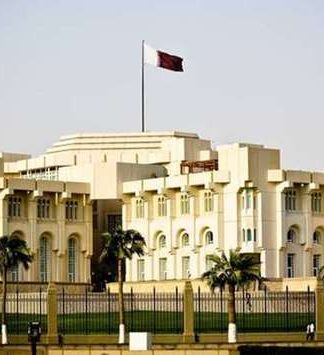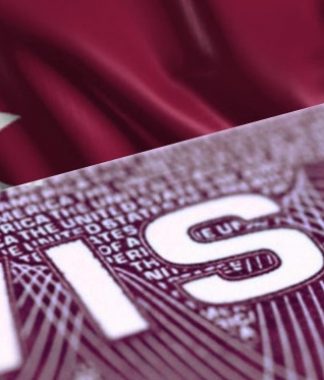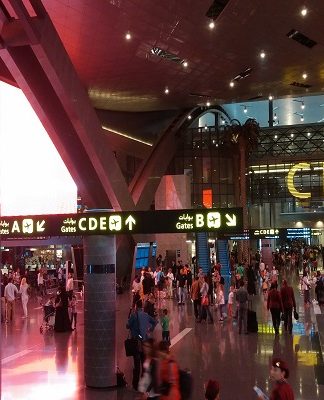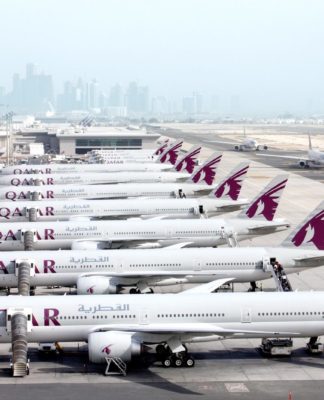BUSINESSUNITED STATES OF AMERICA
Yellen rules out bailout for collapsed Silicon Valley Bank
2 hours ago2 hours ago
The bank, which had thousands of startups as clients, went under on Friday after a run on deposits. A possible merger with a larger bank appears to be on the cards to help shore up clients’ finances.
https://p.dw.com/p/4OZKP
The United States federal government has no plans to bail out the collapsed Silicon Valley Bank (SVB), Treasury Secretary Janet Yellen said Sunday, but promised to help depositors whose money is stranded.
“We want to make sure that the troubles that exist at one bank don’t create contagion to others that are sound,” Yellen said during an interview with CBS television.
On Friday, US regulators pulled the plug on SVB in the largest bank failure since the 2008/9 financial crisis after a sudden run on deposits.
What else did Yellen say?
Yellen said the government was working with the Federal Deposit Insurance Corporation (FDIC), on a “resolution” for SVB, where approximately 96% of deposits are not covered by the reimbursement scheme.
FDIC insures deposits up to $250,000 (€235,000), but many of the companies and wealthy people who used the bank had more than that amount in their accounts.
Yellen also told CBS she had been working with banking regulators over the weekend “to design appropriate policies to address this situation,” but said she couldn’t yet give further details.
“I’m sure they (the FDIC) are considering a wide range of available options that include acquisitions,” she added.
Reuters news agency cited unnamed government sources as saying a “material announcement” would be made later Sunday, which some analysts said could be a merger with a larger bank.
House Speaker Kevin McCarthy told Fox News he hoped that Silicon Valley Bank would be bought.
“I think that would be the best outcome to move forward and cool the markets and let people understand that we can move forward in the right manner,” he said.
US banking system ‘resilient’
Yellen tried to reassure viewers concerned about a possible domino effect from the failure of SVB. She insisted that the US banking system was safer than during the financial crisis almost 15 years ago, which led to several bank bailouts.
“The American banking system is really safe and well capitalized,” Yellen said. “It’s resilient.”
Following the 2008 failure of Lehman Brothers and the ensuing financial meltdown, US regulators required major banks to hold additional capital in case of trouble.
But some analysts have warned that some regional US banks could be in trouble.
They include First Republic Bank, whose share price slumped nearly 30% in two sessions on Thursday and Friday, and Signature Bank, a cryptocurrency-exposed lender, which has lost a third of its value since Wednesday evening.
What was Silicon Valley Bank?
SVB was little known to the public but was a key lender to technology startups in the US and globally and had strong relationships with venture capital firms.
By the end of 2022, it had become the 16th largest US bank by assets, with $209 billion in assets and approximately $175.4 billion in deposits.
However, the bank was impacted by the US central bank’s aggressive interest rate hikes in the last year, which crimped financial conditions in the startup space.
Many of SVB’s assets, such as bonds or mortgage-backed securities, lost market value as rates climbed.
Then its customers — largely technology companies that needed cash as they struggled to get financing — started withdrawing their deposits.
The bank had to sell bonds at a loss to cover the withdrawals.
Impact of SVB failure felt globally
Governments around the world said they were trying to find solutions to limit the potential hit to companies from the collapse of SVB, which has subsidiaries in Canada, Europe and a joint venture in China.
The state minister for technology in India said Sunday he will meet startups this week to assess the impact on them of the collapse.
The South Asian country has one of the world’s biggest startup markets, with many clocking multi-billion-dollar valuations in recent years and backed by foreign investors.
“[I] spoke to some founders and it is very bad,” Ashish Dave, CEO of Mirae Asset Venture Investments (India), wrote in a tweet.
“Especially for Indian founders… who set up their US companies and raised their initial round, SVB is default bank. Uncertainty is killing them. Growth ones are relatively safer as they diversified. Last thing founders needed.”
The Financial Times reported that the British government was trying to get a buyer for SVB’s UK subsidiary, and that a Middle Eastern buyer has expressed interest.
TheUK’s finance minister, Jeremy Hunt, said earlier Sunday that the failure of SVB could have a significant impact on British technology companies, given the importance of the lender to some customers.
German business daily Handelsblatt said SVB had 3,600 customers in Europe. Around 10% of them were said to come from Germany.
Meanwhile, Israel’s Supervisor of Banks Yair Avidan said it was closely monitoring for “immediate developments” from the collapse as well for those that could happen in the future.
Israel’s tech sector is the country’s main growth engine and its relationship with the Silicon Valley region is strong.
Many Israel-based startups had accounts at SVB, although the amounts are not fully known.
mm/fb (AFP, AP, Reuters)






























